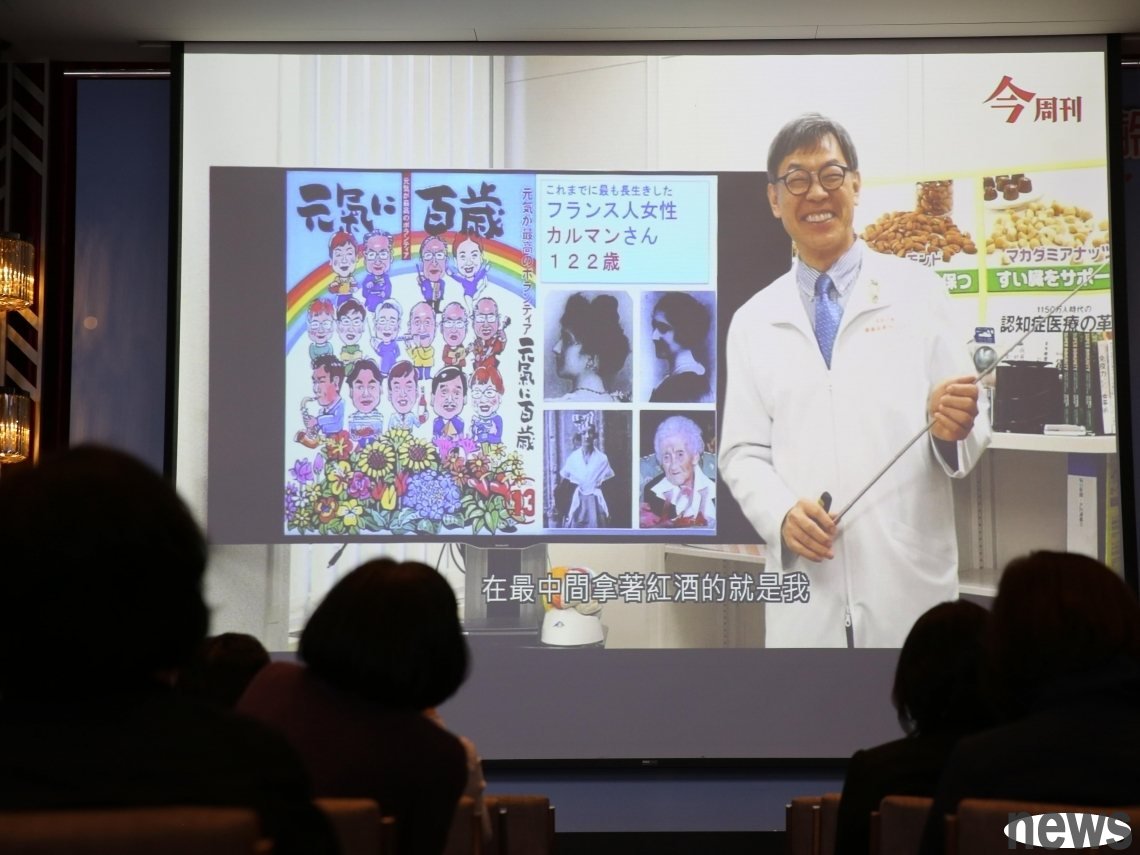
Japan entered a highly aging society earlier than Taiwan, and now it is in the "hundred-year-old" era. Dr. Shirazuo, a Japanese doctor who is a mature doctor who studies long-term genes and Alzheimer's disease and director of the Ochikawa Health Clinic, said that in the past, people would call the time after retirement at the age of 50 or 60 as "older" but many people can live over 100 years old, and even at the age of 80, they can still climb the peak of the Mother of the Saint!
At the fourth Taiwanese exchange forum on Happy and Maturity in this week's magazine, Bai Ze Zhuoer told everyone with a clear and easy-to-understand explanation that as long as you do four things, you can prevent dementia, make yourself clear at the age of 100, live a healthy and long life.
100 years old should live in society

He took the example of Japan's "Violent Hundred Years Club". The purpose of the society is to live in society at the age of 100, so the planning of life will last for 100 years. So how to be full of vitality at the age of 80 or 90? Bai Zezhuo believed that the first thing is to avoid the decrease in the number of fertilized cells during the high age period and keep the brain young.
A 105-year-old woman gave her brain to medical anatomy research, and then she found that the key word "Sea Horse" that affects memory is actually like the young brain, and is still full of neuronal cells, and there is no sign of decline at all. In her final stage of life, she has maintained an energy comparable to that of young people. From this, it can be seen that people with more cells can be very young.
The body of the stool is getting lighter
If you want to maintain the number of stools, Bai Zezhuo believes that you can start from these four aspects.
First of all, you must chew carefully when eating to stimulate the brain. Bai Zezhuo said that the longest man in the world is Ms. Calment from France. She lived to be 122 years old. Although her eyes were almost invisible in her later years, her chewing ability was still amazing. Studies have shown that when chewing, only the part where the movement nerves are located in the 21-year-old will be bright, but when people over 70 years old chew, such as leaf, top leaf, brain, cushion, etc., all show that their brains are used in a large area.
From this we can see that the action of chewing and slowing down is also a movement that can give the brain a wide range of stimulation. In addition, vitamin B or D supplementation is also important. Once lacking, it will cause the number of sterilized cells to become smaller and smaller.
The second is to create a non-boring life environment and have the idea of often challenging new things. He said that German scholar Gerd Kempermann used mice for experiments to study the increase in the environment for stools. The conclusion was that compared with mice that only eat and sleep, the number of stools could increase by 5 to 10 times.
Therefore, after retirement, you must remain interested in participating in various activities, such as volunteering, which can greatly avoid the chance of getting bored. In addition, the daily activities of cooking, sweeping and washing clothes may be something that most men have never done before. If they can start cooking after retirement, they will also use parts that have not been used before in their brains.
Positive entertainment to receive new stimuli
Then go ahead and walk accurately every day to prevent falling into a state that needs to be looked after. Bai Zezhuo believed that in addition to maintaining the recognition function, he could achieve the goal of healthy and healthy walking every day.
Finally, of course, you must face life positively, because if you want to keep your brain cognitive function, facing your life attitude is very important. If you can do it, your brain will constantly receive a lot of stimulation, maintain cell function, and keep your brain young.
●Original publication URL
●